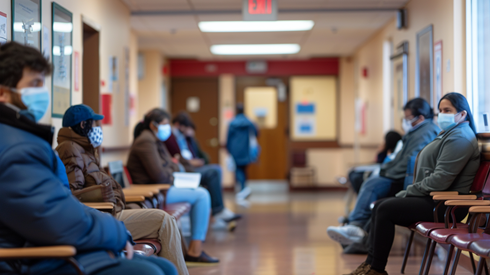Captive Insurers Are Filling COVID-19 Business Interruption Gaps

March 31, 2020

As healthcare facilities rise to meet the challenge of the COVID-19 pandemic, these facilities are suffering significant daily loss of revenue as they are mandated to reallocate resources to deal with the outbreak—at the expense of ambulatory and elective surgery revenue.
Property policies written for healthcare institutions frequently contain broad limitations on business interruption coverage caused by the cascading effect of dealing with the coronavirus.
"Healthcare facilities are quickly realizing that business interruption claims caused by the COVID-19 crisis may be difficult to collect on unless physical loss or damage to property can be substantiated," said Michael Maglaras, principal of Michael Maglaras & Company. "We're now actively engaged with four healthcare systems in freeing up excess surplus in order to contribute to business interruption losses not covered by standard commercial property policies."
Mr. Maglaras has determined that captive insurance companies owned by healthcare providers may be able, in some cases, to play a significant role in property claim recovery, depending upon the amount of the loss and the strength and availability of a captive insurance company's surplus.
"We first encourage healthcare providers to determine the amount of commercial property business interruption and time element coverage that may be available for decontamination costs, communicable disease cleanup, and interruption by communicable disease," Mr. Maglaras said. "But we are very busy speaking daily with healthcare systems about how they can use their captives' existing surplus to augment property insurance coverage availability."
This process does not involve declaring dividends from a captive but does involve the manuscripting of supplementary business interruption and time element coverage to assist in reimbursing expenses directly tied to loss of revenue.
"Even in the case of claims tied directly to business interruption by civil authority, we can create supplementary coverage sources to partially pay business interruption losses, provided that these additional balance sheet liabilities do not compromise reasonable ratios of existing equity to long-term liabilities," said Mr. Maglaras.
Mr. Maglaras noted that he is busy moving captive insurance companies owned by tax-exempt US healthcare providers, which have had a long offshore domicile history, back to the United States.
"There's virtually no reason for a 501(c)(3) tax-exempt healthcare provider to own a captive domiciled outside the United States anymore," said Mr. Maglaras. "Perhaps this terrible COVID-19 crisis will convince US healthcare executives that a US domicile for their captives now makes more sense, not only from the standpoint of innovation and creative solutions but also from the standpoint of optics."
March 31, 2020
